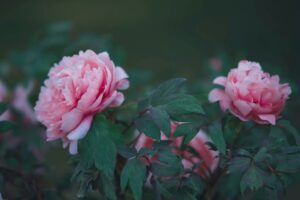
Insomnia
In TCM insomnia is viewed as your mind being unable to fully settle into your body at night-time. This may happen if there is an “Excess” condition, caused by overstimulation and agitation or “Deficiency” condition e.g., Blood and Yin deficiency.
Qi stagnation
Stress stagnates Qi which can then trigger insomnia. This type of insomnia causes light sleep. You may experience vivid dreaming and dreamed disturbed sleep or wake up in the early hours of the night. Your insomnia will be worse with stress and, for women, possibly worse during your premenstrual phase. You may have other signs too, such as feeling generally tense and irritable.
As acupuncture works directly on Qi movement, treatment quickly reduces Qi stagnation symptoms. With Chinese herbal medicine, we use prescriptions to help move Qi alongside additional herbs to help settle the mind. Typical Herbs include Ye Jiao Teng (Polygonum Vine) and Bai Zi Ren (Biota seed).
Exercise is hugely beneficial to help reduce this type of insomnia, as are other forms of stress management techniques.
Heat
Long standing Qi stagnation, external pathogens, or heating diets can all create heat in your body. This heat can trigger insomnia. This type of insomnia is more severe than Qi stagnation insomnia and you will feel hot and restless during the night. You might have vivid dreams and nightmares, and generally feel restless and agitated. Waking up between 1-3am, alongside feeling generally tense and irritable is also common. Other signs of heat include red, sore irritated eyes, a bitter taste and feeling thirsty. Treatments with both acupuncture and herbs are used to regulate Qi and resolve stagnation, alongside clearing heat and calming the mind.
Stomach disharmony
If your stomach is full, your mind can’t settle properly, triggering this type of insomnia.
If you have irregular eating patterns, overeat or eat late at night, you may cause a stomach disharmony type insomnia. Your symptoms will include insomnia alongside a feeling of discomfort and fullness in your stomach area, indigestion, bad breath and belching.
Qi and Blood deficiency
This type of deficiency causes ongoing insomnia because your mind is not able to settle properly into your body due to the Qi and Blood deficiency. If you suffer with this type of insomnia, you will find it difficult falling asleep and switching off your mind. You could also be someone who feels anxious and panicky or suffers with palpitations. Your insomnia may be intermittent, improving when you rest and worsening when you are tired. You may also experience other symptoms such as dizziness, fatigue, poor appetite and feeling tired after you have eaten. This type of insomnia responds well to treatment, especially if you address any changes you need to make to your diet, such as including enough protein and blood nourishing foods.
Acupuncture can help strengthen TCM’s Spleen digestive function, which will help increase Qi. However, if you have lots of signs of blood deficiency, you will probably improve more quickly if you include herbal medicine alongside your acupuncture treatment. Having a regular bedtime routine also helps, as does exercise.
Yin Deficiency
At night-time, dynamic daytime Yang energy quietens down and Yin energy becomes predominant. If Yin is depleted, it is unable to secure your mind. This can generate heat which agitates your body, further disturbing your mind. This type of insomnia involves fitful sleep and you’ll probably be repeatedly waking up, feeling hot and restless. You might wake up after an hour or two feeling thirsty. Your tongue will be red and dry, and your pulse feel rapid and wiry.
In TCM, we see this type of insomnia when you are recovering from serious illness, premenstrual syndrome and during the menopause. Hyperthyroidism, hypertension or withdrawal from stimulant drugs can also be background triggers to Yin Deficiency insomnia.
Treatment
Good sleep pattern routines, alongside other techniques, such as relaxation and meditation, help to calm the mind. Excess patterns i.e., Qi stagnation, Heat and Stomach Disharmony can be slow to respond to treatment as they are often complicated by lifestyle factors, which will continue to add to the problem. Chinese herbal medicine can be especially useful if you suffer with these excess patterns. Deficiency patterns generally respond well to acupuncture and herbal treatment.
At the Jade Centre we see many patients each year to help them to manage their health over the Winter months. Contact us now and book an appointment to get the support you need,

